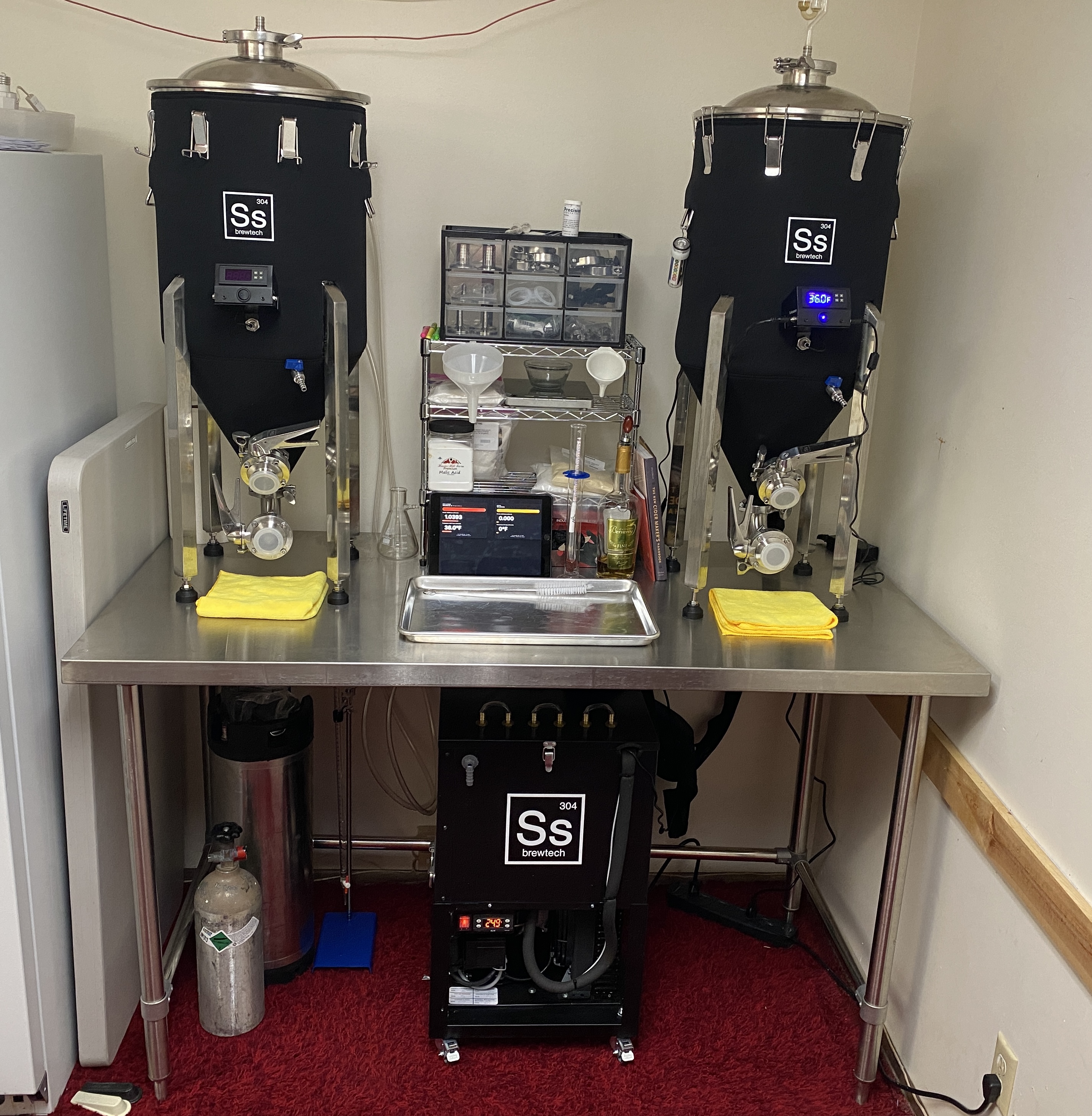Absolutely. No question. If I could have only one reason to make it worthwhile, then the ability to do closed transfers or bottling makes it worth it. No mess, no contamination. No sucking on siphon tubes or fiddling with those stupid siphon pumps. The whole cider room remains clear of the kitchen or garage with the exception of the minutia of time spent cleaning the equipment (we don't have water access in the cider room, which is actually our walk-in pantry). The whole process feels professional and that (to me) makes the whole process infinitely more enjoyable. Not only do I enjoy enjoying (can I say that?) my own cider, but I now enjoy every step of how I got there.
The idea of glass carboys and siphon pumps and stuff is great, and I still use them, but I'll now reserve them for collecting juice when and where I can find it or perhaps putting an "au natural" batch out in the shop to ferment over the winter just to see how it goes.
If you go with a stainless setup, consider all of the accessories you would need. Coils, chillers, butterfly valves, hose connections, temp controllers, etc... I priced out several products, some all-inclusive and some that would have required piecing together a system. I settled on the complete setup from Ss Brewtech which was priced at the higher end of the spectrum. Not only was I convinced that their quality was first-rate, but their service and communication standards are
absolutely excellent. I've been up and running for a couple weeks now, and I'm still shooting them messages asking questions. I always get a thoughtful, patient detailed response. They genuinely make an effort to understand and thoroughly answer your question. Having all of my equipment from them means that I can connect the dots on every piece of equipment and get it right.
Furthermore, they are in the business of building large-scale products for breweries and such. With their homebrew stuff, they have simply scaled their big guns down to the homebrew sizes that have the same form, function, and tolerances as their big stuff. As a result, their instructions and Support page on their site are both pretty darn good. They even site NASA research for Pete sake when explaining Passivation. (BTW you're going to need several POUNDS of Citric acid to passivate your vessels...the 14 Chronical BME needs 4-5lbs of Citric acid just for passivation.
Do not use Star San as it says in the instructions...because NASA  )
)
I realize that's an expensive investment, but the simplicity and savings in time and effort are worth something as well. Additionally, the piecemeal setups I considered would have cost about 80% of what this setup did...the simplicity, convenience, clean, streamlined setup I have here was worth that extra 20% if you ask me. I had a nice Excel document worked up to compare the projects but I deleted it so I wouldn't revisit it later and wish I had saved 20%. That said, I am sure I am going to remain very happy with this setup for a long time.




